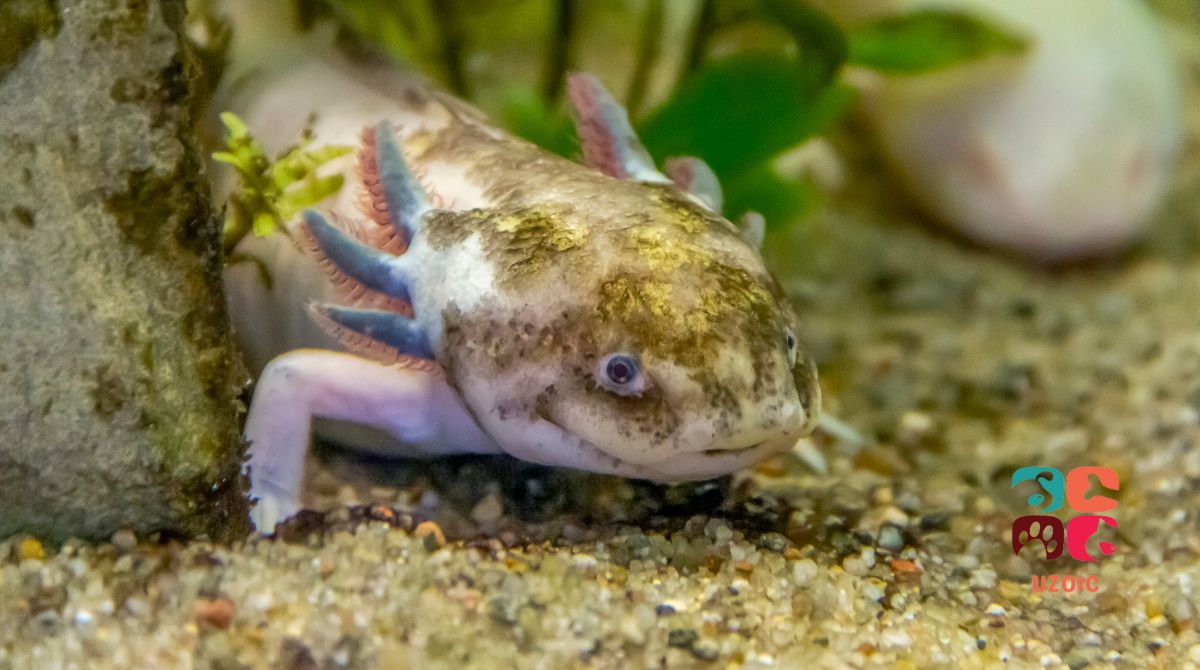While Axolotls may not sleep in the traditional sense, they experience rest and relaxation periods.
Axolotls are aquatic creatures that have fascinated biologists for centuries. These unique amphibians have retained many larval features for their entire adult lives, including external gills and a naked body. Given their intriguing biology and unusual appearance, it is no surprise that many people want to know whether axolotls sleep.
Many scientists believe that they likely do, based on their similarities to other animals that require sleep to stay healthy and function properly. However, others argue that since axolotls spend most of their time submerged in water, their lack of eyelids makes it impossible to achieve sufficient slow-wave sleep.
In this blog post, we will discuss the sleeping habits of axolotls and whether or not they sleep. Understanding it will help you get to know these creatures better and better appreciate their unique biology. Many pet owners get tense when they see their Axolotl lying motionless in their hiding place. You can learn more about your Axolotls health by knowing and understanding their sleeping/resting patterns.
Table of Contents
Do Axolotls Sleep?
Yes, Axolotls do sleep/rest but not in the traditional way. We perceive someone is sleeping when their eyes are closed, and they are resting. Technically, axolotls do not sleep in the traditional sense. They do not have eyelids and do not close their eyes when they rest. However, this does not mean that axolotls do not experience rest periods. In fact, axolotls will often enter into a state of torpor, which is similar to sleep [Source: Nature]. During periods of torpor, axolotls will slow down their metabolism and heart rate. They may also become less active and less responsive to outside stimuli. While in this state, axolotls are able to conserve energy and repair any damage to their bodies. Periods of torpor can last anywhere from a few hours to a few days.
How Can You Tell If An Axolotl Is Sleeping?
If you’re wondering how to tell if an Axolotl is sleeping, there are a few things you can look for. First, Axolotls tend to be less active when they’re sleeping, so if your Axolotl is lying still or moving slowly, it’s likely asleep. You might also notice that your Axolotls gills lie flat against its body instead of being flared out – this is another sign that it’s sleeping. Additionally, Axolotls do not have eyelids, so they tend to sleep with their eyes open.
Typically, when axolotls are resting or sleeping, they will lie still at the bottom of their tank or their favorite hiding place and remain relatively motionless. Please pay attention to the color, as well as they usually tend to turn pale when sleeping.
If you are having difficulty identifying whether your Axolotl is sleeping or awake, you are not alone. Sometimes we can mistake their motionless resting behavior as something wrong with their health; however, it is perfectly normal behavior. Do not be alarmed if you see your Axolotl in this state, as it is likely just taking a nap. You can identify their resting periods by paying attention to their activity levels, location, gill placement, and color changes.
Are Axolotls Active At Night?
Axolotls are active during night and day, but they do exhibit some natural variations in activity depending on the time of day. University Of Michigan’s Animal Diversity Web classifies Axolotl behavior as diurnal and nocturnal, so they may be active at either time. However, most owners report that their Axolotls are more active at night. This makes sense when you consider that Axolotls are nocturnal animals in the wild. They remain active at night as it helps them avoid large active predators during the day. However, in captivity, they may adjust their activity to match their surroundings. Generally, they are not under threat during the daytime in their tank, so they can change their biological clocks accordingly.
Do Axolotl Sleep More During The Day Or Night?
There is no definitive answer to this question since Axolotls are capable of sleeping at any time. However, most owners report that their Axolotls are more active at night and sleep more daily. This is likely because Axolotls are nocturnal animals in the wild. However, in captivity, they may adjust their activity to match their owner’s schedule.
How Long Do Axolotls Sleep For?
They may “rest/sleep” anywhere between a few hours to a few days. Their sleep duration depends on the time of day and their activity level.
Do Axolotl Sleep At Night?
Not necessarily. They may be active at night but this does not mean they sleep during the day. It is more likely that they exhibit different activity levels depending on the time of day.
The question of whether axolotls sleep at night is a tricky one to answer. On the one hand, it seems clear that these fascinating creatures just need to rest, just like any other animal. After all, they spend much of their time resting on the muddy bottom of lakes and ponds. On the other hand, however, they also seem to exhibit quite different behaviors when night falls. For example, they move much more slowly and less energetically at night than during the day, leading some researchers to suggest that they may actually be foraging for small prey. So perhaps axolotls do sleep during the dark hours of the night, but in a much more subtle and nuanced way than we typically imagine.
Axolotls sleeping pattern varies between daytime and nighttime. Sometimes they may sleep during the day and sometimes during the night. They cannot see very well at night but tend to remain active due to their natural instincts.
Conclusion
In conclusion, axolotls do rest, but they sleep with their eyes open since they do not have eyelids. The tell-tale sign of Axolotl wanting to rest is when they retreat to their favorite hiding spot. Axolotls do not have a regular sleep cycle and can rest for a few hours to a few days. Torpor is similar to sleep, but axolotls will slow down their metabolism and heart rate during this state. Do remember that they are mostly active at night!
We hope you enjoyed learning about the sleeping habits of axolotls. If you are ever curious about the sleeping habits of your Axolotl, be sure to ask your veterinarian or reptile specialist for more information. If you found this article helpful, check out our other blog posts on all things axolotls! Until next time, happy reading!
You may like:
- How Do You Treat A Sick Axolotl?
- Why Are My Axolotls Gills Turning White?
- Do Axolotls Bite? The Truth About Their Biting Behavior
- Aquarium Chiller for Axolotl: Should you use it?


